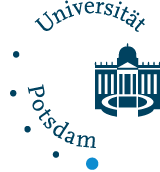Dr. Juliane Wolter
Research interests
My research focusses on biotic and abiotic interactions in cold environments. I am particularly interested in the effects of climatic changes on vegetation, permafrost and organic matter in tundra ecosystems of the Arctic. I enjoy working on present-day change as well as past landscape, permafrost and vegetation development, using a wide range of palaeoenvironmental and biogeochemical methods and statistical techniques.
My central goal is the investigation and identification of possible permafrost and vegetation trajectories in a changing Arctic. High latitude lands are strongly sensitive to warming, as their two main characteristics (permafrost and tundra vegetation) depend on cold temperatures. Any warming has the potential to change the rules of the game fundamentally. At the same time, the Arctic is warming more rapidly than any other part of the world, while still being severely understudied. The fate of organic matter stored in permafrost and plant biomass of this vast region of the world is therefore one of the big unknowns in global change research.
Projects

Dr. Juliane Wolter
Campus Maulbeerallee
University of Potsdam
Ecology/Macroecology
Maulbeerallee 3, Building 3, Room 0.13
14469 Potsdam
Links
ORCID: http://orcid.org/0000-0001-6179-7621
Scopus: https://www.scopus.com/authid/detail.uri?authorId=55842377900
Researchgate: https://www.researchgate.net/profile/Juliane-Wolter-3
Scholar citations: https://scholar.google.de/citations?user=YEQbUD8AAAAJ&hl=de&oi=ao
Academic career
Since 2020: Postdoc in Ecology/Macroecology group, University of Potsdam
2017-2020: Postdoc at Alfred Wegener Institute Helmholtz Centre for Polar and Marine Research
2017: Postdoc at Helmholtz-Zentrum Potsdam Deutsches GeoForschungsZentrum (GFZ) and University of Potsdam
2017: PhD in Geosciences (Palaeoecology), Alfred Wegener Institute Helmholtz Centre for Polar and Marine Research and University of Potsdam
2011: Dipl.-Geoök. Geoecology, University of Potsdam
Publications
Windirsch, T. , Forbes, B. C. , Grosse, G. , Wolter, J. , Stark, S. , Treat, C. , Ulrich, M. , Fuchs, M. , Olofsson, J. , Kumpula, T. , Marcias-Fauria, M. and Strauss, J. (2023): Impacts of Reindeer on Soil Carbon Storage in the Seasonally Frozen Ground of Northern Finland: A Pilot Study , Boreal Environment Research, 28 , pp. 207-226 .
Wetterich, S., Rudaya, N., Nazarova, L., Syrykh, L., Pavlova, M., Palagushkina, O., Kizyakov, A., Wolter, J., Kuznetsova, T., Aksenov, A., Stoof-Leichsenring, KR., Schirrmeister, L., Fritz, M. (2021): Paleo-Ecology of the Yedoma Ice Complex on Sobo-Sise Island (EasternLena Delta, Siberian Arctic). Front. Earth Sci. 9:681511. doi: 10.3389/feart.2021.681511
Wetterich, S., Kizyakov, A., Fritz, M., Wolter, J., Mollenhauer, G., Meyer, H., Fuchs, M., Aksenov, A., Matthes, H., Schirrmeister, L., and Opel, T. (2020): The cryostratigraphy of the Yedoma cliff of Sobo-Sise Island (Lena delta) reveals permafrost dynamics in the central Laptev Sea coastal region during the last 52 kyr, The Cryosphere, 14, 4525–4551, doi: 10.5194/tc-14-4525-2020.
Windirsch, T., Grosse, G., Ulrich, M., Schirrmeister, L., Fedorov, A. N., Konstantinov, P. Ya., Fuchs, M., Jongejans, L. L., Wolter, J. , and Strauss, J. (2020): Organic Carbon Characteristics in Ice-rich Permafrost in Alas and Yedoma Deposits, Central Yakutia, Siberia, Biogeosciences, 17, 3797–3814, doi: 10.5194/bg-2019-470.
Wolter, J., Lantuit, H., Herzschuh, U., Fritz, M. (2018): Climatic, geomorphologic and hydrologic perturbations as drivers for mid‐to late Holocene development of ice‐wedge polygons in the western Canadian Arctic. Permafrost and Periglacial Processes 29 (3): 164-181, doi: 10.1002/ppp.1977.
Wolter, J., Lantuit, H., Herzschuh, U., Stettner, S., Fritz, M. (2017): Tundra vegetation stability versus lake basin variability on the Yukon Coastal Plain, NW Canada, during the past three centuries. The Holocene 27 (12): 1846 – 1858, doi: 10.1177/0959683617708441.
Tanski, G., Lantuit, H., Ruttor, S., Knoblauch, C., Radosavljevic, B., Strauss, J., Wolter, J., Irrgang, A.M., Ramage, J. & Fritz, M. (2017): Transformation of terrestrial organic matter along thermokarst-affected permafrost coasts in the Arctic. Science of the Total Environment 581: 434-447, doi: 10.1016/j.scitotenv.2016.12.152.
Fritz, M., Wolter, J.,Rudaya, N., Palagushkina, O.,Nazarova, L., Obu, J., Rethemeyer, J., Lantuit, H., Wetterich, S. (2016): Holocene ice-wedge polygon development in northern Yukon permafrost peatlands (Canada). Quaternary Science Reviews 147: 279-297, doi: 10.1016/j.quascirev.2016.02.008.
Wolter, J., Lantuit, H., Fritz, M., Macias-Fauria, M., Myers-Smith, I.H., Herzschuh, U. (2016): Vegetation composition and shrub extent on the Yukon coast, Canada, are strongly linked to ice-wedge polygon degradation. Polar Research 35: 27489, doi: 10.3402/polar.v35.27489.
Obu, J., Lantuit, H., Myers-Smith, I.H., Heim, B., Wolter, J., Fritz, M. (2015): Effect of Terrain Characteristics on Soil Organic Carbon and Total Nitrogen Stocks in Soils of Herschel Island, Western Canadian Arctic. Permafrost and Periglacial Processes 28: 92-107, doi: 10.1002/ppp.1881.
Schleusner, P., Biskaborn, B. K., Kienast, F., Wolter, J., Subetto, D., and Diekmann, B. (2014): Basin evolution and palaeoenvironmental variability of the thermokarst lake El'gene-Kyuele, Arctic Siberia, Boreas 44: 216–229, doi: 10.1111/bor.12084
Zibulski, R., Herzschuh, U., Pestryakova, L. A., Wolter, J., Müller, S., Schilling, N., Wetterich, S., Schirrmeister, L., and Tian, F. (2013): River flooding as a driver of polygon dynamics: modern vegetation data and a millennial peat record from the Anabar River lowlands (Arctic Siberia), Biogeosciences 10: 5703-5728, doi: 10.5194/bg-10-5703-2013
